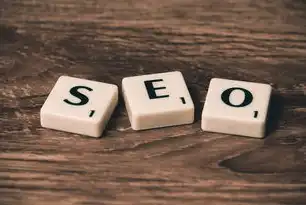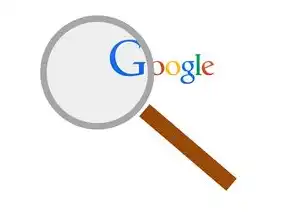In today's digital landscape, businesses face a critical decision when it comes to their online marketing strategy: whether to focus on Search Engine Optimization (SEO) or Search Engine Marketing (SEM). Both strategies aim to increase visibility and drive traffic to websites, but they differ significantly in approach and execution. This comprehensive guide will delve into the intricacies of SEO and SEM, providing insights into their benefits, challenges, and how to choose the right one for your business.

图片来源于网络,如有侵权联系删除
Understanding SEO
Definition: SEO is the practice of optimizing a website to improve its visibility in organic (non-paid) search engine results pages (SERPs). It involves various techniques such as keyword research, content creation, link building, and technical optimization.
Benefits:
- Long-term Results: Unlike SEM, which focuses on immediate results, SEO offers long-lasting benefits. Once a site ranks well organically, it can maintain that position with consistent effort.
- Cost-effective: While initial setup may require investment, high-quality SEO efforts yield substantial returns without ongoing costs.
- User Trust: Organic listings are often perceived as more trustworthy than paid advertisements, leading to higher click-through rates.
- Broader Reach: SEO helps businesses appear in multiple SERP features like featured snippets, knowledge panels, and rich cards, expanding reach beyond traditional text links.
Challenges:
- Time-Consuming: Achieving top rankings through SEO takes time, patience, and continuous effort.
- Competitive Landscape: High competition in certain niches can make it challenging to rank organically.
- Algorithm Changes: Search engines frequently update algorithms, requiring constant adaptation and monitoring.
Understanding SEM
Definition: SEM encompasses all paid forms of advertising on search engines, including Google Ads (formerly AdWords), Bing Ads, and others. It involves creating and managing ad campaigns targeting specific keywords to appear at the top of SERPs.
Benefits:

图片来源于网络,如有侵权联系删除
- Immediate Results: SEM delivers instant visibility by placing ads at the top of SERPs, allowing businesses to quickly attract potential customers.
- Targeted Advertising: SEM allows precise targeting based on demographics, interests, location, and more, ensuring ads reach the most relevant audience.
- Control Over Budget: Businesses have full control over their ad spend, adjusting budgets according to performance metrics.
- Measurable ROI: SEM provides detailed analytics, enabling businesses to track the effectiveness of their campaigns and optimize accordingly.
Challenges:
- Higher Costs: SEM requires ongoing investment, as businesses must continually bid on keywords and create new ads.
- Limited Exposure: Ads occupy a finite space at the top of SERPs, limiting exposure compared to organic listings.
- Ad Fatigue: Continuous exposure to the same ads can lead to user fatigue, reducing engagement and click-through rates.
Choosing the Right Strategy
Deciding between SEO and SEM depends on several factors:
- Business Goals: Consider your short-term and long-term objectives. If you need quick results, SEM might be more suitable. For sustainable growth, SEO is ideal.
- Budget: Evaluate your budget constraints. SEO is generally cost-effective in the long run, while SEM demands regular financial input.
- Industry Competition: Analyze the competitive landscape. Highly competitive industries might necessitate both SEO and SEM to gain traction.
- Target Audience: Understand your target audience's behavior. Some audiences respond better to organic searches, while others prefer paid ads.
- Resource Availability: Assess internal resources. SEO requires dedicated time and expertise, whereas SEM can be managed externally if needed.
Implementing SEO Best Practices
If you decide to prioritize SEO, here are some best practices to follow:
- Keyword Research: Identify high-volume, low-competition keywords relevant to your business.
- Content Creation: Develop engaging, informative content that targets these keywords naturally.
- On-page Optimization: Ensure your website is technically sound, with optimized meta tags, headings, and URLs.
- Off-page Optimization: Build quality backlinks from reputable sources to enhance credibility.
- Mobile Optimization: Optimize your site for mobile devices, as a significant portion of web traffic comes from smartphones.
- Local SEO: If applicable, optimize for local searches using Google My Business and other local directories.
Mastering SEM Campaigns
For those leaning towards SEM, consider these tips:
- Campaign Structure: Create organized campaigns and ad groups focused on specific keywords and products/services.
- Ad Copywriting: Craft compelling ad copy that resonates with your target audience and includes strong calls-to-action.
- Bid Management: Continuously monitor and adjust bids based on performance data to maximize ROI.
- Landing Pages: Design landing pages tailored to each ad campaign, ensuring a seamless user experience.
- A/B Testing: Regularly test different ad variations to identify what works best and optimize accordingly.
标签: #seo还是sem



评论列表